News
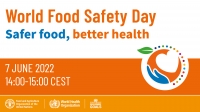
26/05/2022
Together with WHO, FAO will host an online event to mark the Day. The 7 June event will start with video messages from the Directors-General of FAO and WHO, followed by a question-and-answer session with WHO Assistant Director-General Naoko Yamamoto and Director of the FAO Liaison Office with the United Nations in Geneva Dominique Burgeon. They will answer questions about how systemic change can bring safer food and how our behaviour, the way we build food systems and how we organize food supply chains can prevent most foodborne diseases.
The second part of the event will feature a panel discussion about...
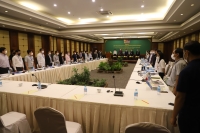
25/05/2022
Government representatives, farmers, academics and food business operators met for a workshop in Siem Reap, Cambodia on 16-18 May 2022 to review efforts to contain foodborne antimicrobial resistance (AMR). The workshop was part of an FAO project that sees the participation of six countries, of which Cambodia is one, seeking to raise awareness, step up collaboration and stop foodborne AMR by implementing the related Codex standards.
We spoke with Jorge Pinto Ferreira, FAO Food Safety Officer, who was there.
- What was the meeting in Siem Reap, Cambodia about?
It was a Progressive Management Pathway (PMP) workshop, in this case an activity of the...
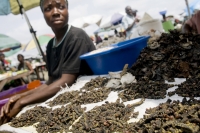
24/05/2022
The Global Food Safety Resource (GFSR) recently published an article on the food safety aspects of edible insects, written by Keya Mukherjee, FAO Food Safety Specialist, and Vittorio Fattori, FAO Food Safety Officer.
While edible insects can come with various potential benefits – environmental, nutritional and economic – these benefits must be weighed against possible challenges, such as food safety issues. This premise has been covered in detail in an FAO document published in 2021, Looking at edible insects from a food safety perspective. Challenges and opportunities for the sector.
Topics such edible insects, seaweeds, cell-based food and...
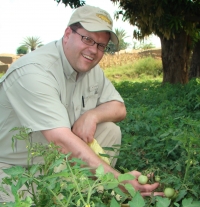
12/05/2022
Microbes are all around us. Many are beneficial and have been harnessed to transform fruits, vegetables and grains into food and beverages we enjoy like bread, injera, beer, wine, kimchi and chocolate. On the other hand, other microorganisms - including viruses, bacteria and fungi - can cause infections and diseases in humans, animals and plants, too.
The health of plants, animals, people and the environment are all inextricably interconnected - a concept known as “One Health”. A prime example of One Health principles is that when plants become infected with microorganisms, they can become sick, not grow as well and thereby...
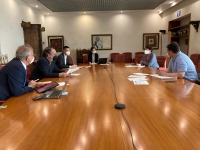
29/04/2022
Earlier this week, the secretariats of the Joint Expert Meeting on Microbiological Risk Assessment (JEMRA) from both FAO and WHO met at FAO in Rome to discuss ongoing and future work. This is the first time that the secretariats from both organizations met physically since 2020 due to the safety measures of the pandemic.
The JEMRA team from FAO and WHO has been very efficient and productive since 2020. They convened four JEMRA and three ad hoc expert meetings virtually, published six technical reports, eight summary reports, one peer review paper and a brochure and infographic in six official UN languages.
However,...

28/04/2022
Two years later, as we faced the published report, many of us remembered that distant day when we opened a link to see the call to work on food allergens from FAO and WHO.
FAO Food Safety Officer Kang Zhou reflects on the adventure leading up to the compilation of such an international scientific report, likening the style to that of a literary masterpiece by Gabriel García Márquez. Starting from the recollection, or memory, in this case of the call for experts and the call for data. Some work can be done individually, but other work needs people from different regions,...
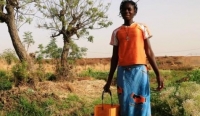
26/04/2022
The Standards and Trade Development Facility (STDF) will host a “climate change week” in the way of four webinars on 3 to 6 May 2022 to explore the impact of climate change on the global food system. The four inter-connected webinars will bring together representatives of STDF partners and stakeholders to discuss the challenges of climate change for food safety, animal and plant health, and identify opportunities to respond to emerging risks and facilitate safe trade.
The topics are:
Climate Change and Animal Health 3 May 2022, 14:00 – 15:00 (CEST)
Climate Change and Plant Health 4 May 2022, 14:00 –...
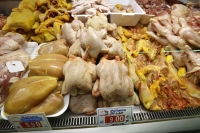
19/04/2022
For the attention of Food Safety Authorities, Poultry Processors and Academia: we need your data on the Control of Salmonella and Campylobacter in poultry meat. Further to a recent call for scientific experts to participate in an upcoming Joint FAO/WHO Expert Meeting on Microbiological Risk Assessment (JEMRA) on the control of Salmonella and Campylobacter in poultry meat, the JEMRA is also seeking data to support this new work.
More specifically, governments, the food industry, academia, consumer groups, laboratories, health care providers and any other interested organizations and individuals are being asked to submit any available data on the following:
Information...
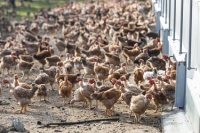
15/04/2022
As we continueto read daily reports of outbreaks and product recalls due to Salmonella, it comes as no surprise that foodborne Salmonella causes more than 78 million illnesses and over 59
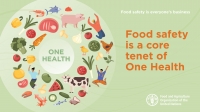
06/04/2022
A session on Zoom, hosted by FAO, the World Organisation for Animal Health (OIE), United Nations Environment Programme (UNEP), World Health Organization (WHO), addressed ‘enhancing food safety through a One Health approach’ on 6 April 2022. Markus Lipp, FAO Senior Food Safety Officer, delivered closing remarks at the 1.5 hour discussion that was part of the FAO in Geneva One Health Dialogue Series.
“Life is complicated, food safety is complicated and One Health is even more complicated,” Lipp said, noting the importance of working together to overcome resource problems, share knowledge and reap the benefits of national and international collaboration. After...
Stay up to date and connect to our RSS feed!
